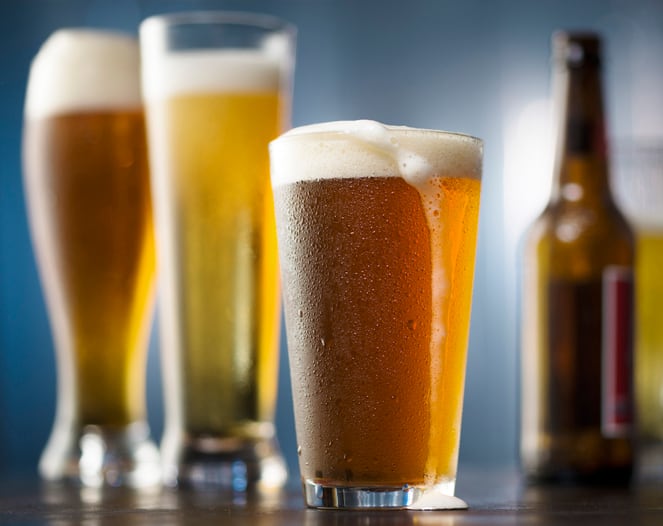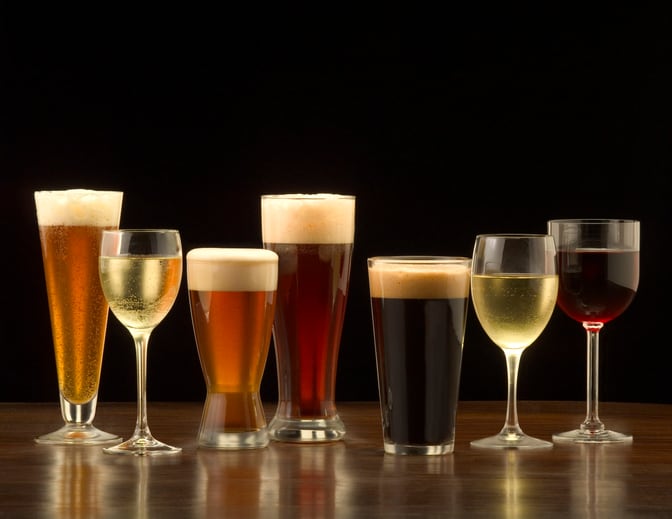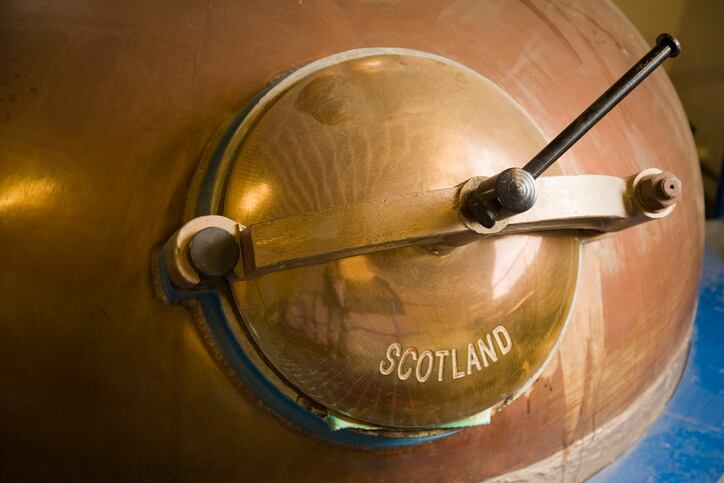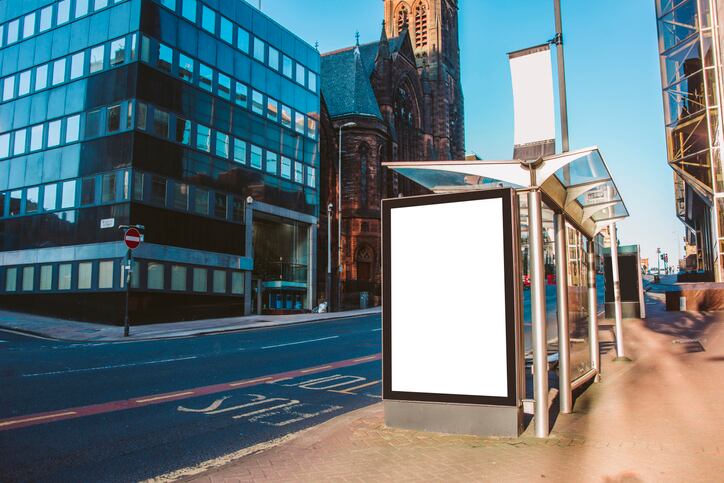Scotland is considering restricting adverts for alcohol at sporting events, on buses, online and elsewhere, in a bid to address the country’s ‘deep, longstanding and troubled relationship with alcohol.’
Potential restrictions include prohibiting alcohol sports sponsorship; banning marketing outdoors (such as on vehicles and in public spaces); and restricting the visibility of alcohol in supermarket stores (such as covering alcohol in behind the till areas in a similar way to tobacco).
The proposed restrictions are aimed at stopping children and vulnerable people from seeing and being influenced by alcohol advertising.
Ban on alcohol sports sponsorship
Scotland has already pioneered minimum unit pricing (the measure was introduced back in 2018) and now wants to go further with restrictions on alcohol marketing.
Public Health Minister, Maree Todd, said: “There is clear evidence that adverts which glamorise drinking can encourage young people to drink alcohol and have a detrimental impact on those in recovery from problem alcohol use.
“We are making progress already – with our minimum unit pricing reducing alcohol sales in the off-trade – but with 1,245 alcohol related deaths last year we know that more needs to be done if we are to tackle Scotland’s problematic relationship with alcohol.”
One of the key questions posed by the consultation is whether alcohol sports sponsorship should be prohibited.
“There is a long-standing relationship between alcohol brands and sport in Scotland, particularly in football and rugby union. Research considering 34 rugby and football teams/organisations in Scotland found that nearly four in ten of the teams audited (39%) had a sponsorship relationship with an alcohol producer or distributor.”
The consultation suggests the prohibition of alcohol-branded sports merchandise, including sponsorship on replica kits.
Position of alcohol in retail
The consultation is expansive, and includes:
- Banning alcohol adverts in print media – newspapers and magazines
- A ban on sports sponsorship in Scotland, which would also include bans on players and staff featuring in alcohol adverts in print and online.
- A ban on alcohol events sponsorship.
- A total ban on outdoor alcohol advertising including on vehicles and in public places
- Restrictions on the retail of display of alcohol
- Ban the sales of alcohol-branded merchandise in Scotland,
- Extending any marketing restrictions to low and no alcohol alternatives which share branding with drinks over 1.2% ABV.
- Restricting the content of alcohol advertising to only factual statements
Another consideration is to restrict advertising on TV, radio and in cinemas, although such rules may have to be decided with the UK Government (the Scottish Parliament only has the power to make laws on devolved matters).
In 2020, Scots bought enough alcohol for everyone aged over 16 to drink 18 units of alcohol every week. This is equivalent to around 23 bottles of spirits, or around 90 bottles of wine, per adult each year; which is 28% more than the low-risk guidelines of 14 units per week.
In 2021, 1,245 people in Scotland died from illnesses that can only be caused by drinking alcohol: an average of 24 people per week. In addition to deaths wholly caused by alcohol, some deaths are partly attributable to alcohol consumption. (3,705 deaths attributable to alcohol consumption in 2015.)
In the 2020/21 financial year, there were 35,124 alcohol-related hospital stays.
In the 10% most deprived areas of Scotland, rates of alcohol-specific deaths and alcohol-related hospital stays were eight times higher than in the 10% least deprived areas.
Self-regulation doesn’t work, says government
Alcohol marketing in the UK is largely self-regulated, by the alcohol and advertising industries, as well as co-regulated with Ofcom for broadcast advertising. “However, different industry-developed codes of practice apply to different media, with different bodies overseeing compliance,” notes the consultation document.
While the Portman Group (a group funded by the alcohol industry) has a clear code that advertising must not appeal particularly to people under 18 years old, the consultation says that, in reality, children and young people still see a ‘high volume’ of alcohol marketing.
“Despite alcohol being a health harming and age-restricted product, children and young people are readily exposed to alcohol marketing in Scotland. Although the current self-regulatory system has been in place, and strengthened, over a number of decades, there is little evidence that this is working in terms of reducing young people’s exposure and providing adequate protection.
“A survey of over 3,000 young people aged 11-19 years old in the UK found that half of the sample recalled seeing 32 instances of alcohol marketing in the last month, effectively one piece of alcohol marketing every day. Within the under 18 demographic, one third of those sampled recalled 54 or more instances of alcohol marketing – almost twice a day. This is simply far too high.”
The consultation suggests that one of the problems in the code is defining what is ‘particularly appealing’ to under 18s is a subjective threshold – and that ‘when young people are asked whether alcohol adverts are appealing they often answer that these are, despite self-regulatory bodies’ decisions that these are not appealing’. Furthermore, it suggests that children often aspire to appear alder than they are and are drawn to products that suggest a greater maturity.
Industry response: 'Recommendations are entirely disproportionate'
Responding to the consultation, Matt Lambert, CEO of industry self-regulator the Portman Group (which is funded by alcohol companies) said: “The majority of adults in Scotland are moderate or non-drinkers and it is encouraging that binge drinking, alcohol-related crime and underage drinking have all significantly declined. These recommendations are entirely disproportionate and inhibit consumers’ ability to make informed choices, and restrict the ability to trade for producers and retailers who ensure that alcohol is sold responsibly."
“The Portman Group’s Codes of Practice have played a significant role in helping to achieve reductions in underage drinking, through extensive commitments to ensure that marketing and sponsorship does not target under 18s or vulnerable consumers.
“The Scottish Government’s own Health Survey [published in November] shows that average weekly intake has fallen to well below the official UK Government weekly guidelines. This has all occurred at a time when the amount of advertising spend has increased, suggesting that there isn’t an immediate correlation between them.
“However, there is still work to be done in addressing the small minority that drink to harmful levels and they require targeted health led interventions.
“We are pleased to see that the Scottish Government are prepared to work with existing regulators, and we commit to engage fully and constructively with the process.”
Meanwhile, a coalition of alcohol companies have objected to the proposals in an open letter published last month.
The consultation can be found here.




